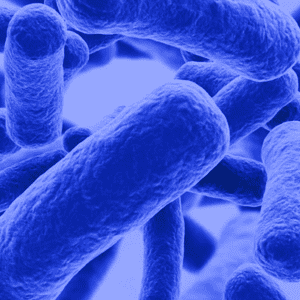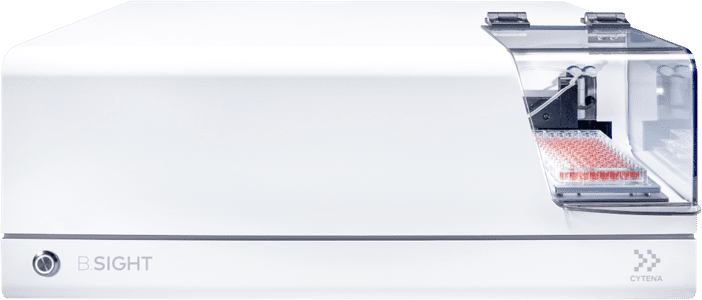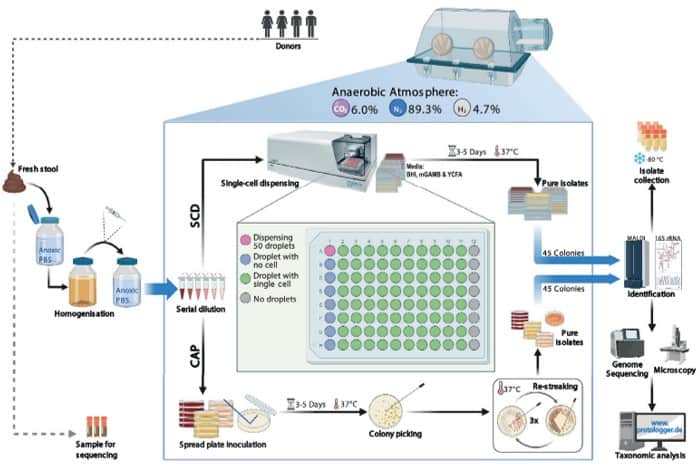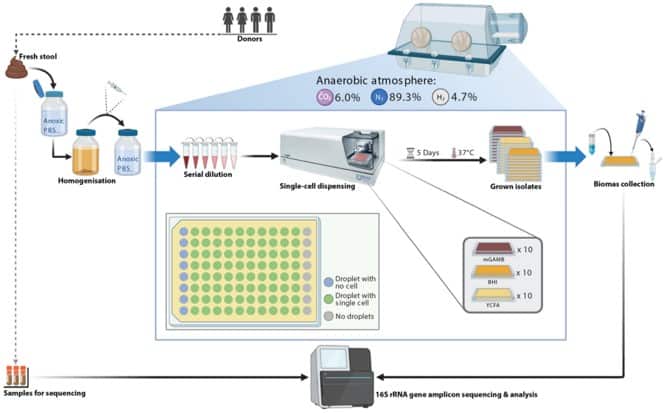- PRODUCTS
-
UP.SIGHT™ NEW
Optimized For Proof Of Monoclonality, Colony Tracking, Confluency, & Titer Measurement -
F.SIGHT™ 2.0
Optimized For Rapid Dispensing of Fluorescent Cells -
C.SIGHT™ 2.0
Optimized for Powerful Dispensing of Unlabeled Cells -
B.SIGHT™
Optimized For Rapid Microbial Single-Cell Isolation and Cultivation -
F.SIGHT™ OMICS
Optimized For Single-Cell-Omics -
F.SIGHT™
Optimized For Affordability And Flexibility -
C.SIGHT™
Optimized for Affordable Cell Line Development - Help Me Choose
-
UP.SIGHT™ NEW
- APPLICATIONS
- RESOURCES HUB
- COMPANY
- SHOP
THE B.SIGHT ACCELERATES CULTIVATION OF HUMAN GUT BACTERIA USING SINGLE CELL DISPENSING TECHNOLOGY

Prof. Thomas Clavel leads the Functional Microbiome research group at the Institute of Medical Microbiology, RWTH University Hospital, Aachen. The Clavel lab is dedicated to Functional Microbiome Research where they study gut microbial diversity by means of molecular and cultivation techniques. They also investigate the impact of specific bacterial taxa in health and diseases using gnotobiology.
Afrizal Afrizal is a PhD candidate at Clavel lab in Aachen, Germany. He uses CYTENA’s single-cell dispenser, the B.SIGHT, to isolate single microorganisms from the human gut microbiotaand and identify new species of bacteria. He is first author of one of the Clavel lab latest paper titled “Anaerobic single-cell dispensing facilitates accelerates the cultivation of human gut bacteria”, that was published in Environmental Microbiology.
THE B.SIGHT ACCELERATES CULTIVATION OF HUMAN GUT BACTERIA USING SINGLE CELL DISPENSING TECHNOLOGY
Prof. Thomas Clavel leads the Functional Microbiome research group at the Institute of Medical Microbiology, RWTH University Hospital, Aachen. The Clavel lab is dedicated to Functional Microbiome Research where they study gut microbial diversity by means of molecular and cultivation techniques. They also investigate the impact of specific bacterial taxa in health and diseases using gnotobiology.
Afrizal Afrizal is a PhD candidate at Clavel lab in Aachen, Germany. He uses CYTENA’s single-cell dispenser, the B.SIGHT, to isolate single microorganisms from the human gut microbiotaand and identify new species of bacteria. He is first author of one of the Clavel lab latest paper titled “Anaerobic single-cell dispensing facilitates accelerates the cultivation of human gut bacteria”, that was published in Environmental Microbiology.
Prof. Thomas Clavel leads the Functional Microbiome research group at the Institute of Medical Microbiology, RWTH University Hospital, Aachen. The Clavel lab is dedicated to Functional Microbiome Research where they study gut microbial diversity by means of molecular and cultivation techniques. They also investigate the impact of specific bacterial taxa in health and diseases using gnotobiology.
Afrizal Afrizal is a PhD candidate at Clavel lab in Aachen, Germany. He uses CYTENA’s single-cell dispenser, the B.SIGHT, to isolate single microorganisms from the human gut microbiotaand and identify new species of bacteria. He is first author of one of the Clavel lab latest paper titled “Anaerobic single-cell dispensing facilitates accelerates the cultivation of human gut bacteria”, that was published in Environmental Microbiology.
Products used:
B.SIGHT
Aim:
Developing a new anaerobic single-cell dispensing (SCD) workflow that allows researchers to isolate strictly anaerobic bacteria from human stool.

HUMAN GUT MICROBIOME:
Bacteria are dominant microorganisms within the human gut microbiome. With an estimated 4 × 1013 cells per individual, they make up a few hundred grams of biomass and 300–400 species per human individual.
However, only a small fraction of these gut bacteria has been identified and classified. The unknown species impact efforts to fully understand microbe–host interactions and the possible benefits of microbiota-based therapeutics. Additionally, the unknown species within gut microbiomes are hard to detect with the existing methods other than whole-sample sequencing, which requires extensive optimization strategies for successful culturing.


STUDY:
Cultivation via classical agar plate (CAP) is one of the most common methods used to isolate colonies derived from a single bacterium. However, this technique overlooks many rare species and is time consuming. Afrizal and colleagues approached this problem by isolating single bacteria through SCD with the B.SIGHT under an anaerobic atmosphere.
They collected four human stool samples (2 male and 2 female), and used them for isolation of bacteria using both B.SIGHT and CAP.
CONCLUSION
The study demonstrated that the SCD workflow using the B.SIGHT significantly decreased the experimental time to obtain pure cultures by more than 3-fold compared to the CAP workflow, whereas the diversity and relative abundance coverage of the isolates were comparable. Moreover, at a depth of dispensing of 2,400 cells per sample only, the SCD workflow allowed to obtain bulk cultured biomass covering an average of 52.2% sequence-based diversity, highlighting the potential for deeper cultivation projects from single samples. Researchers were also able to fully characterize 21 novel bacteria taxonomically through this study.
The study demonstrated that the SCD workflow using the B.SIGHT significantly decreased the experimental time to obtain pure cultures by more than 3-fold compared to the CAP workflow, whereas the diversity and relative abundance coverage of the isolates were comparable. Moreover, at a depth of dispensing of 2,400 cells per sample only, the SCD workflow allowed to obtain bulk cultured biomass covering an average of 52.2% sequence-based diversity, highlighting the potential for deeper cultivation projects from single samples. Researchers were also able to fully characterize 21 novel bacteria taxonomically through this study.
References:
Afrizal, A., Hitch, T.C.A., Viehof, A., et al. Anaerobic single-cell dispensing facilitates the cultivation of human gut bacteria. Environmental Microbiology. 2022; 00(00): 00-00. DOI: 10.1111/1462-2920.15935
Afrizal, A., Hitch, T.C.A., Viehof, A., et al. Anaerobic single-cell dispensing facilitates the cultivation of human gut bacteria. Environmental Microbiology. 2022; 00(00): 00-00. DOI: 10.1111/1462-2920.15935
Products used:
B.SIGHT
Aim:
Developing a new anaerobic single-cell dispensing (SCD) workflow that allows researchers to isolate strictly anaerobic bacteria from human stool.

HUMAN GUT MICROBIOME:
Bacteria are dominant microorganisms within the human gut microbiome. With an estimated 4 × 1013 cells per individual, they make up a few hundred grams of biomass and 300–400 species per human individual.
However, only a small fraction of these gut bacteria has been identified and classified. The unknown species impact efforts to fully understand microbe–host interactions and the possible benefits of microbiota-based therapeutics. Additionally, the unknown species within gut microbiomes are hard to detect with the existing methods other than whole-sample sequencing, which requires extensive optimization strategies for successful culturing.


STUDY:
Cultivation via classical agar plate (CAP) is one of the most common methods used to isolate colonies derived from a single bacterium. However, this technique overlooks many rare species and is time consuming. Afrizal and colleagues approached this problem by isolating single bacteria through SCD with the B.SIGHT under an anaerobic atmosphere.
They collected four human stool samples (2 male and 2 female), and used them for isolation of bacteria using both B.SIGHT and CAP.
CONCLUSION
The study demonstrated that the SCD workflow using the B.SIGHT significantly decreased the experimental time to obtain pure cultures by more than 3-fold compared to the CAP workflow, whereas the diversity and relative abundance coverage of the isolates were comparable. Moreover, at a depth of dispensing of 2,400 cells per sample only, the SCD workflow allowed to obtain bulk cultured biomass covering an average of 52.2% sequence-based diversity, highlighting the potential for deeper cultivation projects from single samples. Researchers were also able to fully characterize 21 novel bacteria taxonomically through this study.
References :
Afrizal, A., Hitch, T.C.A., Viehof, A., et al. Anaerobic single-cell dispensing facilitates the cultivation of human gut bacteria. Environmental Microbiology. 2022; 00(00): 00-00. DOI: 10.1111/1462-2920.15935



